9 Lessons From Strength Training We Can Apply To Anti-Racism Work
Before we get into any of this, I need to make one thing perfectly clear. I am not an anti-racism educator. I have always used writing and my blog as a way to make sense of things that I’m working through in my own life. My hope is that this will be peek into my brain, a gateway to understanding based on something I write about regularly (fitness), and an invitation to dive into anti-racism work and learn more for yourself.
Now that we have that out of the way. . .
I’ve been thinking about ways in which I’ve been complicit over the years. Nobody likes to consider themselves a racist, but the truth of the matter is, we all have some underlying racist habits that we tend not to see. One of the biggest, that’s been pointed out by many, is the misunderstanding that silence=neutrality. As fitness professionals, it’s important to consider people’s mental and emotional well-being, as well as safety in the spaces we hold. Silence is not the answer here.
When we, as fitness professionals, fail to take action or take a stance against racism (not to mention other issues related to social justice), it says a lot about who we actually care to help.
Racism is a public health issue. That’s not my quote. I don’t know who said it first, but it was someone much wiser than me, and it’s the truth. And it doesn’t always look like outright racist statements and actions like we saw with the CEO of Crossfit. This past week, I’ve seen many of my colleagues in the fitness industry do things like:
- Refuse to acknowledge the issue at all and continue posting their latest workout or meal prep like nothing ever happened.
- Shut down comments and conversations from community members who wanted to have a discussion about race.
- Claim that discussing racism is causing division within their organization and that we all just need to “be one”. Love and light. Let’s stick to fitness and not get political. Blah blah blah.
I’ve been guilty of all of this too at some point. I’m sure of it.
I’m sure I’ll continue to screw up, even within this very post. But I also know that for those of us who value growth, have any amount of empathy or emotional intelligence, or want to do better by our clients, we have an opportunity to be on the right side of history here. So, in light of that, here are some lessons I’ve learned from strength training that I wish we could all apply to anti-racism work.
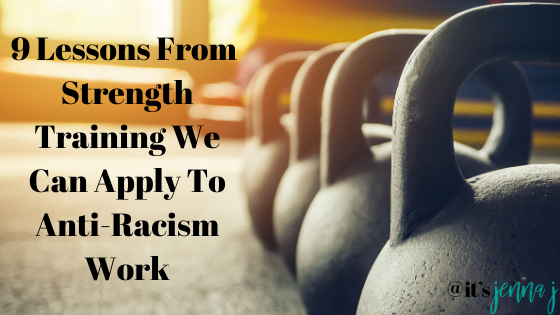
1. You are probably gonna suck at first.
Think about the first time you tried anything. You were probably horrible at it. I know a lot about kettlebell skills now, but the first kettlebell I ever owned was an impossibly light plastic thing filled with sand that I didn’t know what do to with. It took time and consistent effort over years to learn how to swing well, and it’s a skill that I consistently refine, both for myself and for my clients. Anti-racism work is the same. Nobody should expect to be perfect at it right away. Still, showing up imperfectly is better than not trying at all.
2. We can do hard things.
Truth be told, we shouldn’t even be complaining that this is hard if we don’t experience it directly. But I get that it can be uncomfortable. It’s not easy to confront the ways that you may have caused harm or to admit that you were wrong. It requires resilience to come back the next day and try again, especially if you’ve been called out or called in. But we do this all the time in strength training. Lift something heavy. Wake up the next day sore. Come back a few days later and try again. Eventually it gets easier.
3. All-or-nothing mindset never works in the long term.
I always encourage my clients to start with “small wins” and set process driven goals that they are 90% sure they can accomplish. I also often point out that doing too much too fast when it comes to working out is a great way to burn yourself out. Same goes with activism. I see a lot of people going on all out social media posting rampages. Calling out every single one of their family members, ordering every book, and donating to every cause. This is great, but is it sustainable? Much like you might follow a training program, consider creating a manageable game plan for how you’ll continue your anti-racism work into the next year and beyond.
4. It’s important to listen those with more experience than us.
When you want help with your fitness, you hire a personal trainer or sign up for a class. When your trainer gives you form tips on how to do a push-up correctly, you listen. So when Black people, or people with any marginalized identity share their lived experience with you, LISTEN. Learn. Believe them. If you’re white, you are not the expert on racism.
5. Good training and education is not free.
Fitness professionals spend thousands of dollars on certifications. If you like to work out, you’ve likely spent just as much on gym memberships, a trainer, overpriced leggings, and workout equipment. You wouldn’t ask me to train you for free just because we’re friends. Don’t expect a free education from your Black friends or acquaintances either. Google it before you ask for free labor. Better yet, don’t ask for anything for free at all. Pay for anti-racism courses, Venmo your favorite content creator (or anyone who took the time to help educate you) or join their Patreon. I’ll leave some suggestions below. 🙂
6. Form checks are a part of the process.
Somewhere along the way, you might get called in or called out for doing this wrong. Try not to get defensive. In strength training, form checks are part of the norm. Feedback is a part of the culture. If someone tells you you’ve done something racist (even if it was unintentional), sit with it for a bit instead of reacting. Thank the person who took the time to correct you. Genuinely apologize if you need to. Make it right if you can. Apply the feedback for next time.
7. This is a journey not a destination.
You don’t do one workout and magically become “fit” for the rest of your life. You also don’t magically become “not a racist” because you posted a black square on your social media once. It’s what you do on a consistent basis and how you live your life day after day that matters most.
8. It still counts even if you didn’t track it.
I’m always telling my clients that it’s ok if their Apple watch didn’t catch their whole workout or they forgot their FitBit at home. While making your solidarity known is great, you don’t have to broadcast every action you take for it to “count” or contribute to meaningful change. What we do behind the scenes will shine through in the long term, in the way we show up and behave in the world.
9. Physical strength translates into bigger and better things.
Strength training is life training. The lessons we learn through it can and should be applied to other areas of our life. Pressing a heavy kettlebell over your head is really cool. But what’s even better is being able to lift others up in the process.
Do not let getting to the end of this post be the end for you.
I cannot stress that enough. Don’t consider me the expert on this. I am learning and unlearning just like you. My hope was to use this post to process what’s been going on in my head over the past few weeks and make sense of it in the context of something that I, my clients, and other fitness professionals already understand.
If you want to learn more I highly recommend learning from (and paying for) the following:
This is by no means an exhaustive list, but rather a way to get started.
Chrissy King-Anti-Racism Course For Fitness & Wellness Professionals
Decolonizing Fitness-Patreon page
Me & White Supremacy by Layla F. Saad-book and workbook
So You Want To Talk About Race by Ijeoma Oluo-book
Wanna get better at push-ups? Whether you’re trying to get your first one without using your knees, training to beat the entire patriarchy in a push-up contest, or just create better memories around push-ups than 5th grade gym class gave you, this program will help get you there.
Tough Love Strength Club will open for enrollment in October 2022. Enter your name & email to get on the waitlist & get first dibs, a free trial when doors open, and a discount on enrollment!
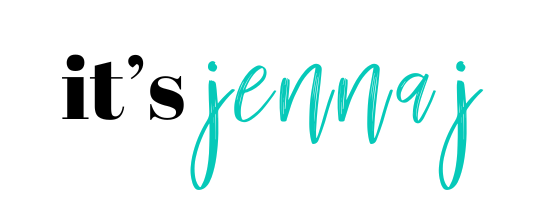
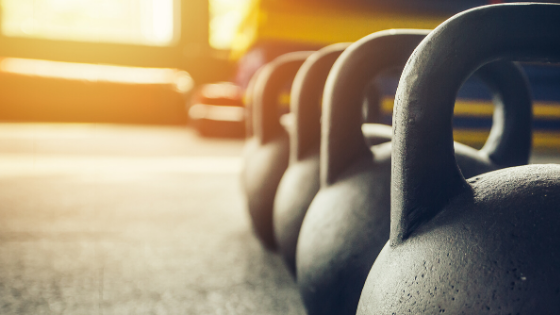

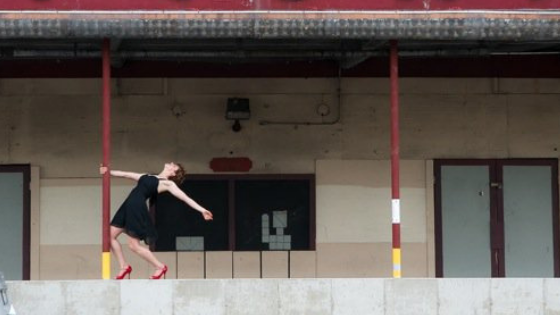
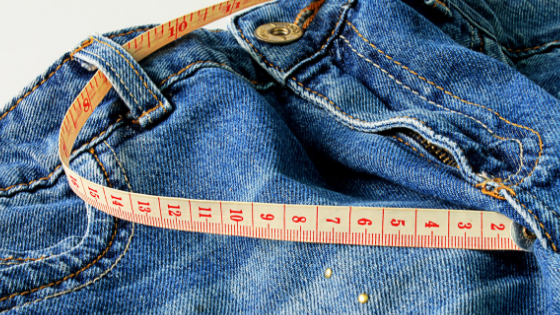

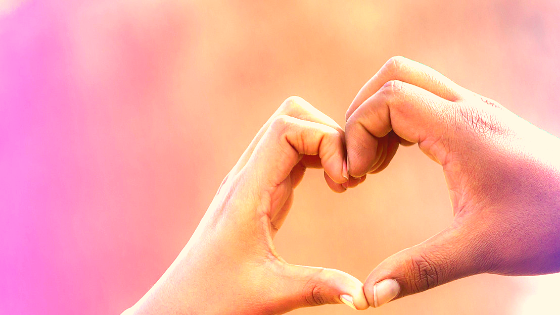

Thanks for this excellent parallel, Jenna. I hope this helps more people get to work and continue the hard work. Sending love from a proud former student!
Awww thanks Bridget! Hope you are well!
Thank you for this!
You’re so welcome!